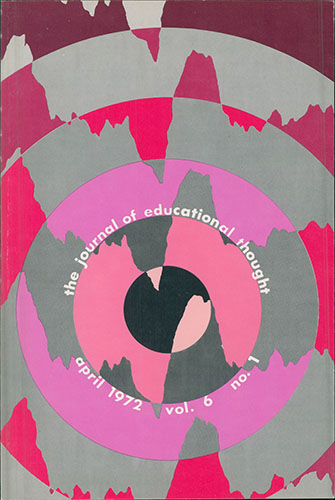Teaching and Some Aspects of Meaning
DOI:
https://doi.org/10.11575/jet.v6i1.43583Abstract
Whether by speaking or by writing, efforts to communicate can never be completely successful. No two persons can ever have learnt the meaning of any word in precisely the same circumstances. However, where those trying to communicate have undergone similar experiences or where they make much the same assumptions, their chances of communicating adequately will be good. Indeed, members of any close-knit group a family or life-long neighbours, for example need not attempt to be always explicit. Much of what they wish to say to each other is already implied by context of situation, and mere reference to a subject may suffice. In what may be called 'the language of intimacy, a word or two and a glance at a watch could, as we say, 'speak volumes'. Correspondingly, where the backgrounds and assumptions of those attempting to communicate are very different, the difficulties of making each other understand are vastly increased. If they are to communicate at all, they must be explicit. This is most obvious, say, where East tries to meet West, but more insidiously it can occur where both parties are apparently of the same culture and speak versions of the same language.
Downloads
Published
Issue
Section
License
The Journal of Educational Thought retains first publication rights for all articles. The Journal grants reproduction rights for noncommercial educational purposes with the provision that full acknowledgement of the work’s source be noted on each copy. The Journal will redirect to the appropriate authors any inquiries for further commercial publication of individual articles. All authors wishing to publish in JET will be asked to fill in and sign a Consent to Publish and Transfer of Copyright agreement.
Authors must affirm that any submission to JET has not been and will not be published or submitted elsewhere while under considration by JET.

